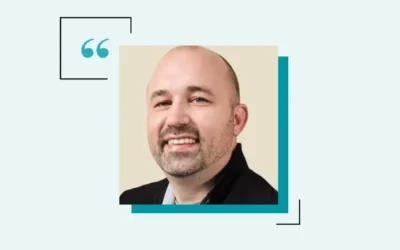Running multiple organizations that are all adjacent to each other can come with challenges. For Alan Miller, who operates four different companies in a CEO, president and/or owner capacity — including a sports apparel brand Official League, a marketing agency COLLiDE and multiple sports teams — these challenges can quickly pile up without strong financial leadership.
Two of those sports teams under the COLLiDE brand are the marketing-savvy minor league baseball teams the Portland Pickles and the Lake County Captains. To keep these businesses progressing and their fan experience interesting, Miller has turned to Mike Zielinski — a former CFO in the oil and gas world with a love for baseball — to lead the finances of his organizations.
Beginning in 2021, and full-time since 2023, the two have developed a communication process that prioritizes both their strengths and their impact on the strategic decision-making elements of all the businesses.
From finance jargon to actionable metrics
Miller credits Zielinski’s ability to utilize his experience and expertise, not only to help guide his businesses, but how he does so in a way that keeps Miller feeling like he’s in the loop on what matters.

“What’s been helpful is Mike’s knowledge base, which is so much different than mine,” said Miller. “He always has a perspective that I am just inherently not going to see, such as understanding tax implications or different ways of doing things from a financial perspective that can benefit us. There’s always a more efficient way of doing things, and I think having someone who can understand all the information a company like ours is dealing with in a way that they can take action off of that data is valuable.”
Miller wants to be a part of forecasting process for marketing campaigns and spend, and says he and Zielinski have worked together to build practices around how to best interpret data and organizational goal development, all while keeping an authentic tone of communication between them throughout the process.
“I think forecasting is a really big part of [marketing spend]; understanding how and where we can show improvement is important,” said Miller. “I think where we are realistic as an organization is we have a good understanding of what a strong growth chart is. We can show growth YoY or season-over-season, but there are many different ways that we can spot success in our ideas too.
“When it comes to the relationship with finance, it’s really about understanding what the goals are in the short term and how we can move beyond them in the long term.”

Alan Miller
CEO
“We can track and define our growth in different ways like both community and financial growth, for example, and when it comes to the relationship with finance, it’s really about understanding what the goals are in the short term and how we can move beyond them in the long term, Miller said. “So, I might have an idea about how we should do something, and Mike responds with something like, ‘well, that’s not the way the math works,’ and that’s something I need to hear from time to time.”
Cross collaboration
When asked about the inner workings of the sports teams and companies he oversees and the communication between them, especially the baseball teams, Miller works to avoid silos of the organizations under the COLLiDE umbrella. According to him, these open doors of communication between organizations have been incredibly impactful when it comes to strategic decision-making.

“It’s really important to me for our people to work together and to understand what decisions are being made and how we can come to conclusions that work for everyone,” said Miller. “You have to have that dialogue within leadership. I always keep in mind, especially from the CFO perspective, that not everyone is going to be able to digest information quickly and understand it.”
Miller noted the importance of the CFO being capable of communicating in a way everyone in the organization understands, given the diversity of backgrounds and experiences. “There’s a different way to review information than going through eight years of spreadsheets [and] I don’t learn that way, and I think someone who can interpret things like that and help us communicate those complex parts of the businesses in ways that are actionable helps us use teamwork to build these organizations regularly,” he said.
Leveraging other growth industries
Miller has launched multiple successful marketing campaigns that have gained his organizations some notoriety. Last month, the Pickles were the first organization in the history of professional baseball to offer a THC cannabis-infused beverage for sale at their home field in Portland. Just like CFOs, Miller says leveraging the growth of the cannabis space has brought some positive attention to the team and has allowed them to put themselves in the baseball history books.

“This was interesting to us, and I was sort of surprised at the result of this initially,” said Miller. “We introduced the first CBD beverage at our stadium five years ago, and it was the first beverage of its kind offered at an event. Maybe we were a bit early, and as a result, we got a little pushback from the campaign.”
“I always keep in mind, especially from the CFO perspective, that not everyone is going to be able to digest information quickly and understand it.”

Alan Miller
CEO
Miller says this time around, the reaction has been much more well received. “We’ve noticed the reaction is different across the country. Portland is such a liberal city; cannabis has been legal here for so long that a hemp-derived product sounds about right around here.”
Miller is comfortable being a trendsetter, even with the initial resistance. “We felt it was a great opportunity to push forward these types of beverages at games because we feel that even if this is taboo to some people, it’s just another alternative for people to enjoy themselves at a Portland Pickles game,” he said. “I know we won’t be the last ones to do this. It’s been a great opportunity for us, and I am sure there will be partnership opportunities for these types of products for teams all over the world at some point.”
This is part two of a two-part series. Read part one with CFO Mike Zielinski here.





